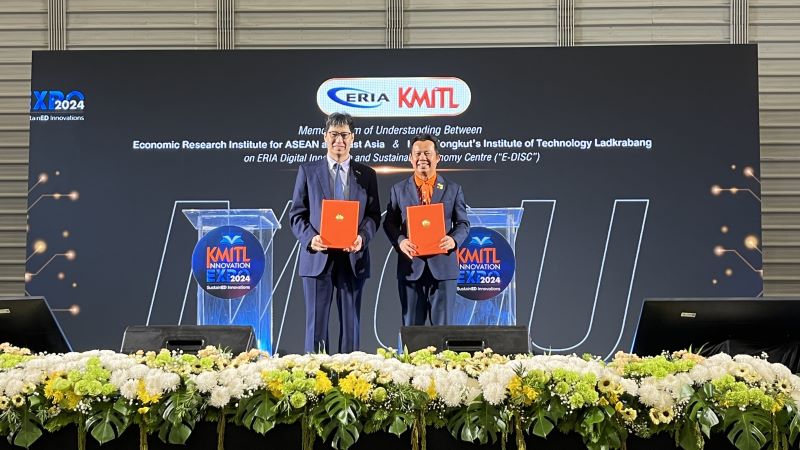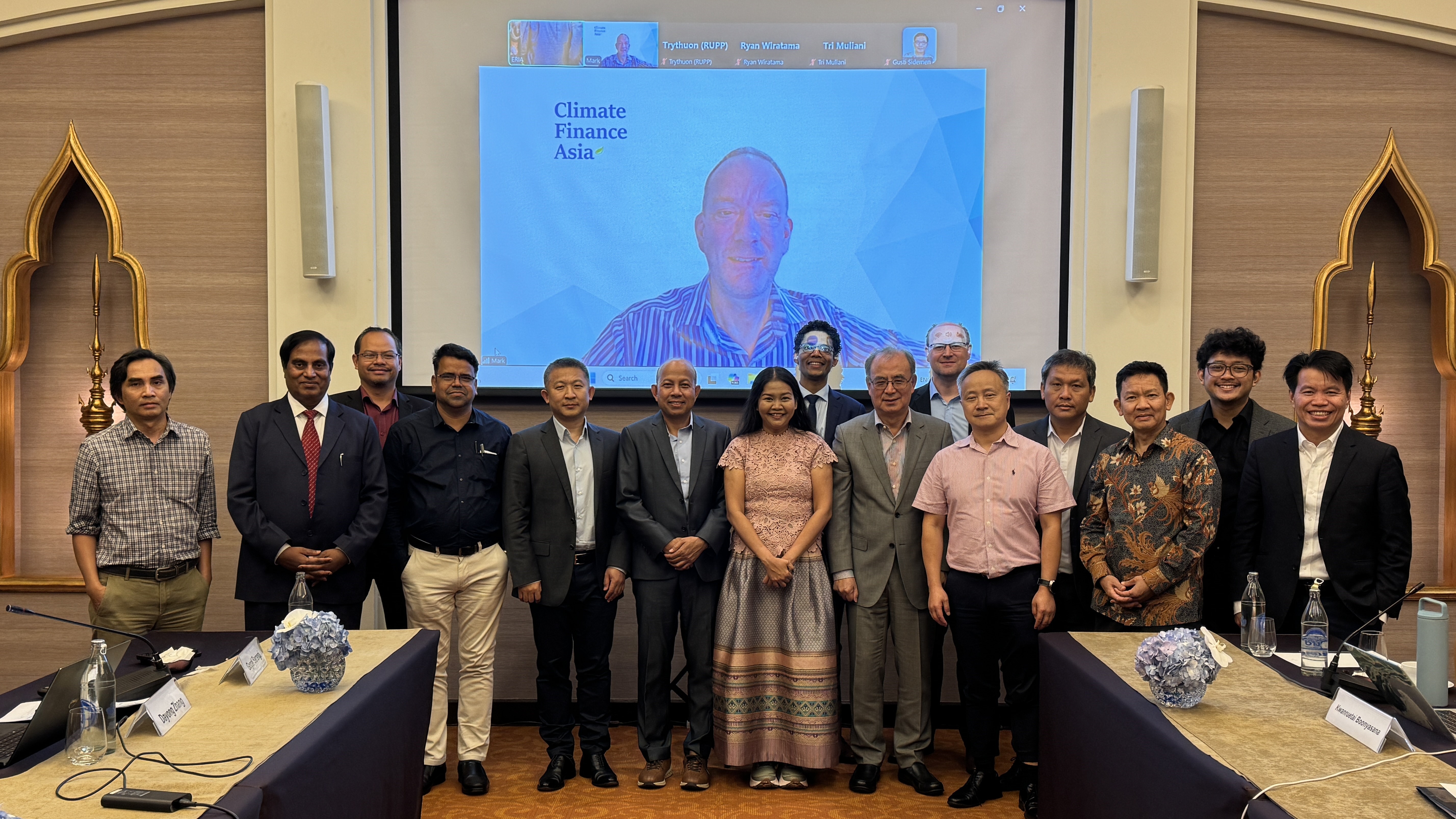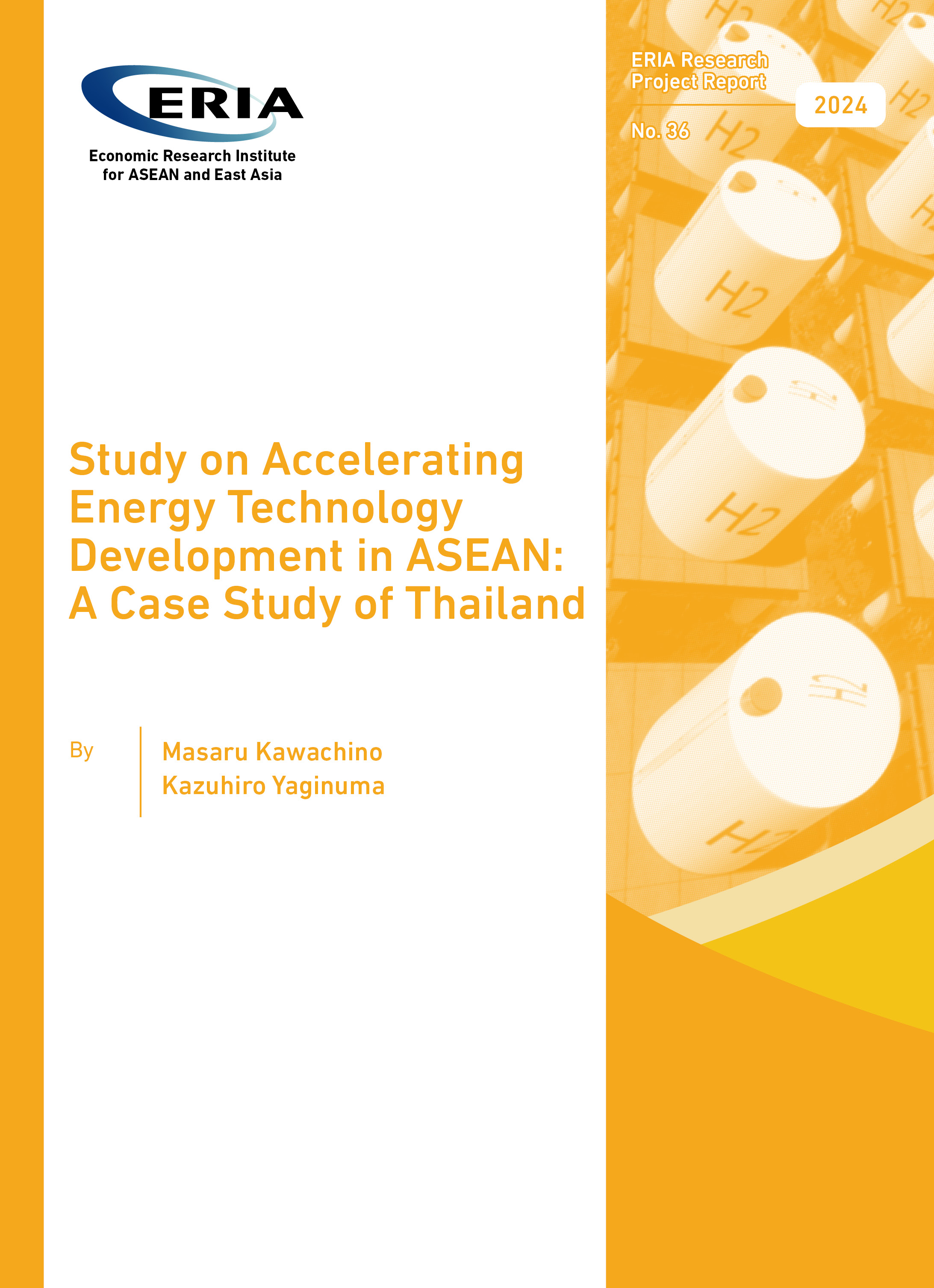ERIA Signs MoU with King Mongkut Institute of Technology Ladkrabang
Date:
3 March 2024Category:
NewsShare Article:
Print Article:
Bangkok, 3 March 2024: ERIA signed a Memorandum of Understanding (MoU) with the King Mongkut's Institute of Technology Ladkrabang (KIMTL) during the KMITL Innovation Expo 2024, which was held at the university from 1 to 3 March.
During the signing ceremony, Koji Hachiyama, ERIA's Chief Operating Officer, delivered a presentation on the ERIA Digital Innovation and Sustainable Economy Centre (E-DISC). He emphasised the imminent expansion of ASEAN’s digital economy and stressed the imperative need for human resource development to achieve the digitalisation of society. He expressed ERIA’s honour in collaborating with KIMTL to explore research avenues in digital innovation, sustainable economy, and the development of digital human resources.
The MoU was signed by COO Hachiyama and KMITL President, Dr Komsan Maleesee, marking a milestone in their partnership.
On the first day of the expo, Dr Wan Seok Chang, an Economist at ERIA, delivered a presentation titled ‘Adoption of Big Data Analytics and How It Leads to Innovation.’ The presentation was comprised of two parts: an overview of ERIA and the role and objectives of E-DISC, as well as an overview of how the adoption of big data can increase production innovation.
He briefly introduced the history of ERIA and delineated its research focus for ASEAN and East Asia. He also outlined the background of establishing E-DISC and its role, missions, and goals in supporting digital transformation in the ASEAN region.
Furthermore, Dr Wan explained the theoretical framework of big data and its potential to enhance production innovation. Supported by empirical evidence drawn from a survey of Korean manufacturing enterprises in East Asia, he highlighted how using big data could amplify production innovation.
In conclusion, Dr Wan underscored the necessity for policymakers in the ASEAN region to devise more effective policy measures to facilitate the adoption of digital technologies by micro, small, and medium-sized enterprises, fostering innovation and promoting a sustainable economy.

_800x450.jpg)
_800x450.jpg)







